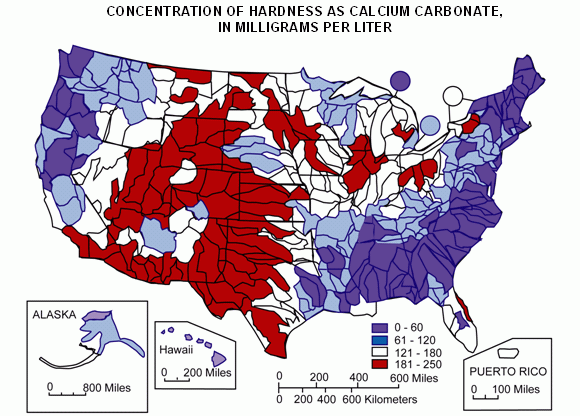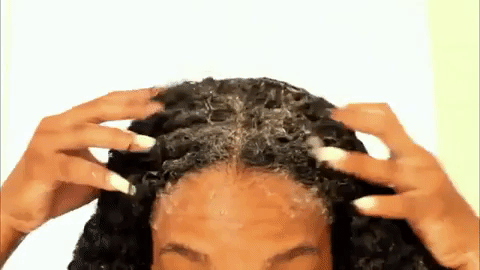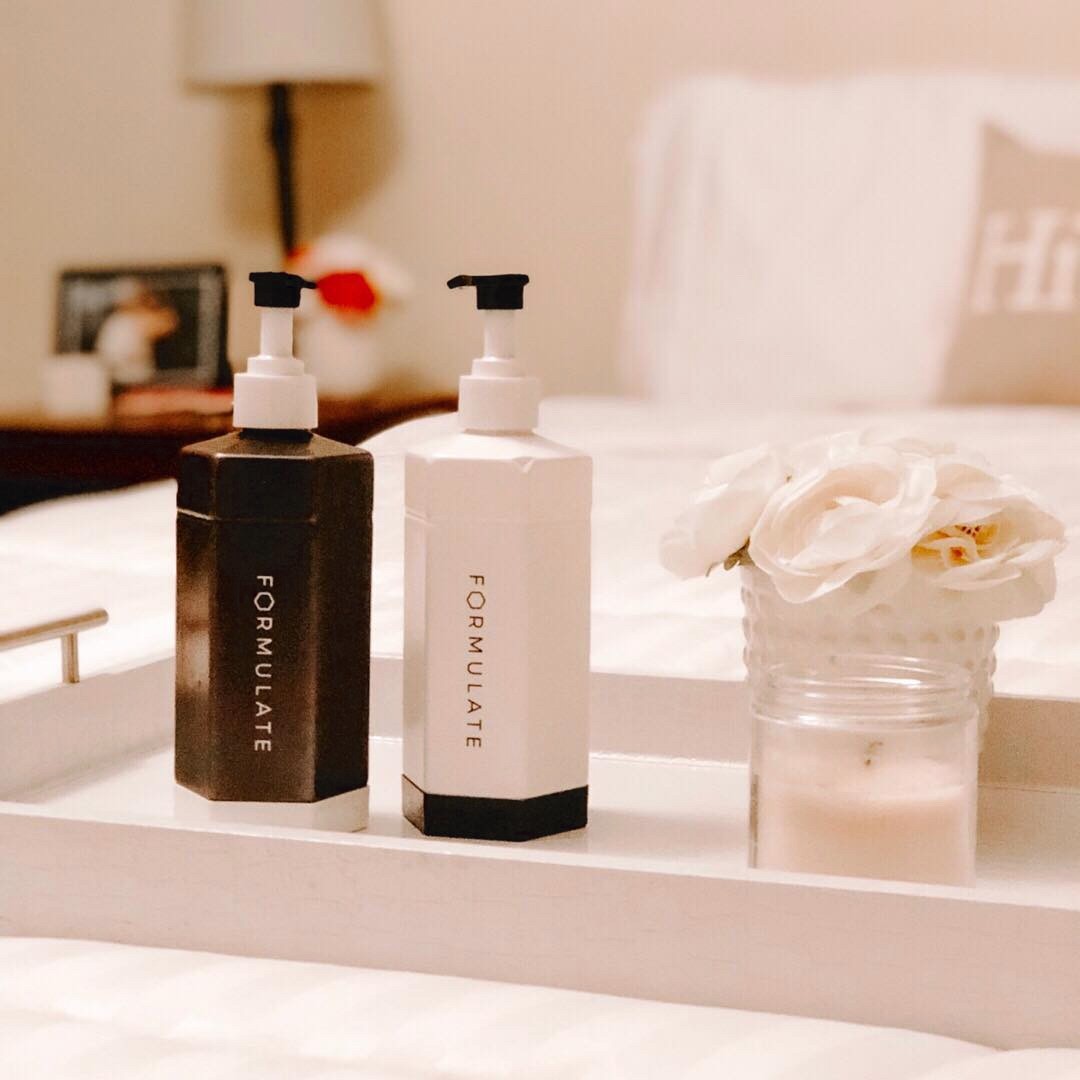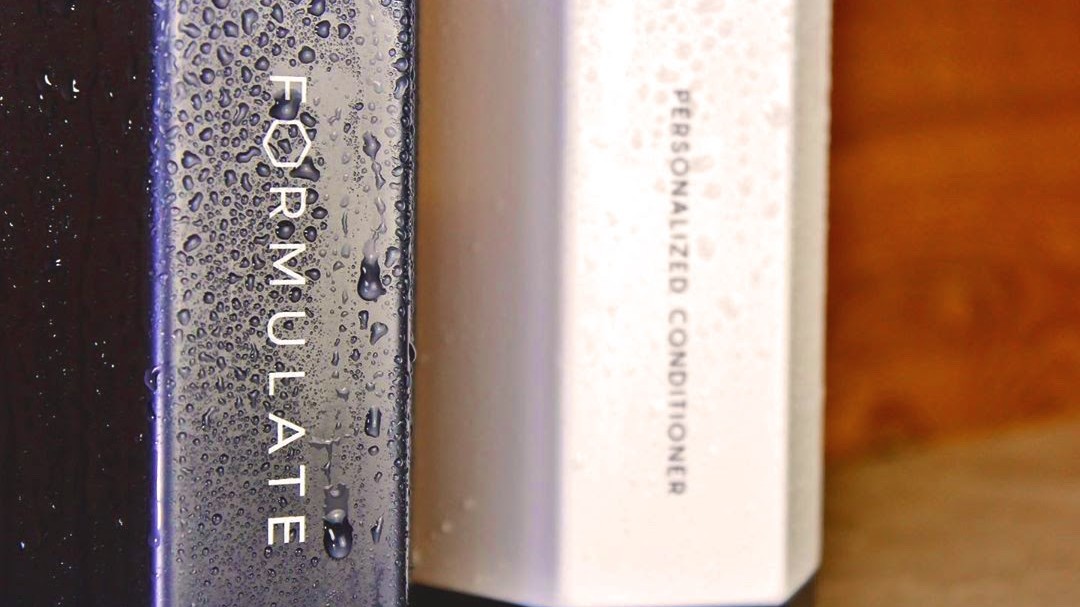What is hard water?
The hardness of water is determined by the amount of salts (calcium carbonate [CaCO3] and magnesium sulphate [MgSO4]) present in it. If these salts are present in excess (not to the extent that your water is ocean-level salty, but where there's still an unusual amount of salt) the water is considered to be hard.
How can I tell if I have hard water?
One of the best ways to find out if you have hard water is to ask the government -- no, really. If you're located within the US, The United States Geological Survey (USGS) has an awesome map to help you figure out if you live in an area with hard water.
It's a smidge short on super area specific detail (it is a map of the entire United States, after all), so if you'd like to know more info about your water supplier we recommend that you head to the Environmental Protection Agency ( aka the EPA). They have a detailed database of water quality reports that are available to the public online -- you can find your supplier, and learn exactly what's in your water/where it comes from.

Another way to figure out if your water is hard is to look for some tell-tale signs.
Hard water sometimes can leave a white-ish buildup on pipes and appliances like dishwashers and washing machines -- nothing too gross, but definitely intrusive enough to be annoying.
Soaps and shampoos also lather less when used with hard water, in comparison to when they're used with soft water.
Hard water can lead to slow-running water (due to mineral buildup), clothes quickly losing their vibracy after a wash (again, mineral buildup, plus the prevention of lathering), and itchy, dry skin (the saltiness of hard water can make it more difficult to rinse soap from your skin during a shower, leaving you with an uncomfortable soapy residue).
Is there anything good about hard water? Well, there are some people who actually enjoy the way hard water tastes, which is definitely... something. Hard water also contains more minerals than soft water which is certainly a good thing -- many of us could benefit from a little additional calcium and magnesium in our diets.
All in all, while hard water is not considered to be a health hazard, it can be frustrating.
Signs of hard water on hair
Hard water can show up on hair in a lot of different ways. To name just a few:
-
Stiffness and inflexibility
- Lack of shine
- Lack of volume
- Unmanageability
- Frizz
- Dry & itchy scalp
All in all, not a hair'sperience that we'd recommend.
And sure, a lot of those symptoms will go away if you treat the root of the problem either by installing some form of water softener, or by, ya know, moving. But what happens if you don't do anything about the hard water -- can it actually hurt your hair?
Does hard water damage hair?
There's limited research on the effects of hard water on hair, so no definitive conclusions can be made. Still, there is some solid evidence that long-term exposure to hard water could be damaging to hair.
For example, one 2018 study found that 10 minutes of exposure to hard water every other day over the course of three months significantly decreased the tensile strength of 70 tested hair samples. When compared to hair samples that were exposed to deionized water and hair samples that were not exposed to any water, the hairs that had been exposed to hard water were more likely to break when exposed to tension.
 Non science-speak conclusion = washing your hair in hard water might make your tresses more likely to snap when brushing, styling, pulling, et cetera.
Non science-speak conclusion = washing your hair in hard water might make your tresses more likely to snap when brushing, styling, pulling, et cetera.
But all is not lost! Other research has indicated that hard water might not always damage hair if the exposure is short-term and if the water is only hard-ish.
In particular, one 2013 study demonstrated that the tensile strength of 15 hair samples was not affected when the hair samples were exposed to hard water for only 30 days. Besides including a shorter period of exposure, the water used in this study was less hard than the water used in the 2018 study. As noted by the authors of the 2018 study, it is possible that water may need to reach a certain level of hardness to actually damage hair.
So that's what the official hard water hair science can tell us. It's still important to note, however, that the complications that come with hard water exposure can lead to long term consequences.
To illustrate: if you are a person who has chronically tangly hair, you might not be cool with the idea of gently de-knotting your hair for a half hour every morning. That time could be spent with your family, friends, or heck, even just vegging out watching netflix -- all of which probably sound better than cautiously picking through your tangles.
Instead, you might opt for the detangling-by-force approach: gritting your teeth and yanking a brush through your hair once every day or so before styling. While that strategy is a sure way to detangle your hair, it'll only do so by pulling your strands out of your scalp, and into your brush-- buh bye, hair!
 Another example: let's say that hard water has sapped all volume from your tresses. To deal with this loss, you curl your hair three times a week, just to get a little more va-va-voom when you go to work or school or wherever. But as we've discussed many times on this blog -- heat tools are bad news for hair. Consistent use is an almost guaranteed method of damaging your strands via boiling them from the inside out.
Another example: let's say that hard water has sapped all volume from your tresses. To deal with this loss, you curl your hair three times a week, just to get a little more va-va-voom when you go to work or school or wherever. But as we've discussed many times on this blog -- heat tools are bad news for hair. Consistent use is an almost guaranteed method of damaging your strands via boiling them from the inside out.
So what's the takeaway? There's some solid evidence that hard water itself can be damaging to hair. There's also the potential for the symptoms of hard water to interact with your lifestyle/environment to cause further damage to hair. Our verdict: when it comes to hard water, proceed with caution, and minimize other forms of hair damage wherever possible
Have questions about how hard water might be affecting your hair? Get in touch with one of our formulation techs while taking our hair quiz, and we'll see what we can do about it together.
Thirsty for more hair knowledge? Here's what to check out next:
Is Lemon Juice Good For Your Hair?
Get the juicy details
Hair Texture Changes 101
The good, the bad, and the ugly ... when it comes to hair texture changes, we've got you covered
Can Anxiety Cause Hair Loss?
Take a deep breath... it'll be good for your hair.
How Often Should You Brush Your Hair?
We talked to the experts to find out
Living With An Oily Scalp + Dry Ends
#unfair, right?



 Non science-speak conclusion = washing your hair in hard water might make your tresses more likely to snap when brushing, styling, pulling, et cetera.
Non science-speak conclusion = washing your hair in hard water might make your tresses more likely to snap when brushing, styling, pulling, et cetera.  Another example: let's say that hard water has sapped all volume from your tresses. To deal with this loss, you curl your hair three times a week, just to get a little more va-va-voom when you go to work or school or wherever. But as we've discussed many times on this blog -- heat tools are bad news for hair. Consistent use is an almost guaranteed method of damaging your strands via boiling them from the inside out.
Another example: let's say that hard water has sapped all volume from your tresses. To deal with this loss, you curl your hair three times a week, just to get a little more va-va-voom when you go to work or school or wherever. But as we've discussed many times on this blog -- heat tools are bad news for hair. Consistent use is an almost guaranteed method of damaging your strands via boiling them from the inside out. 